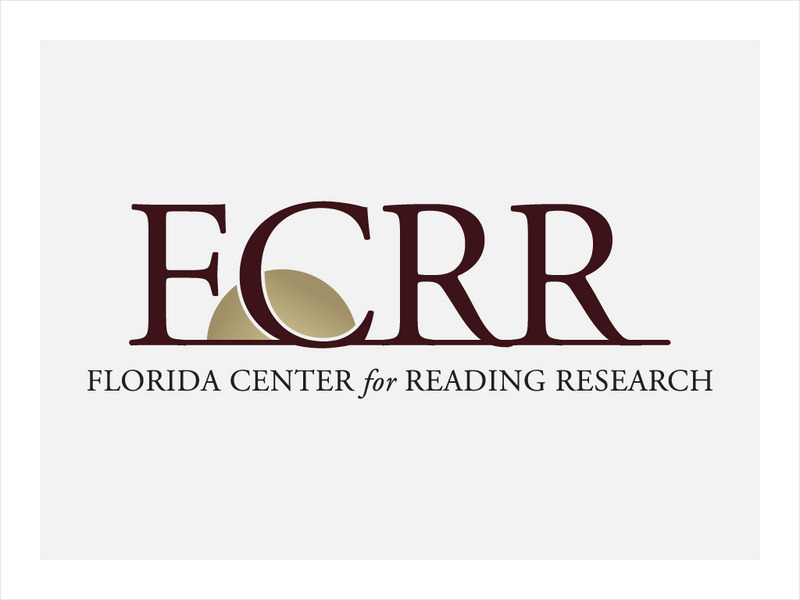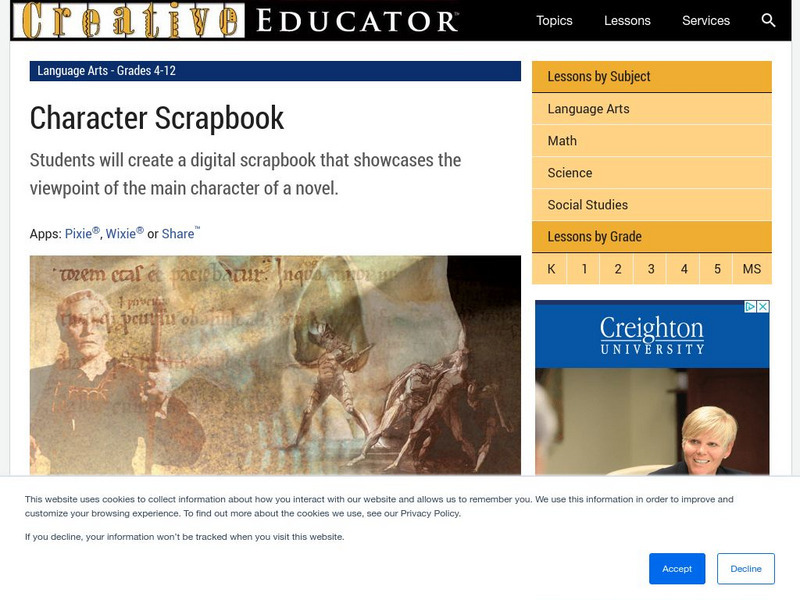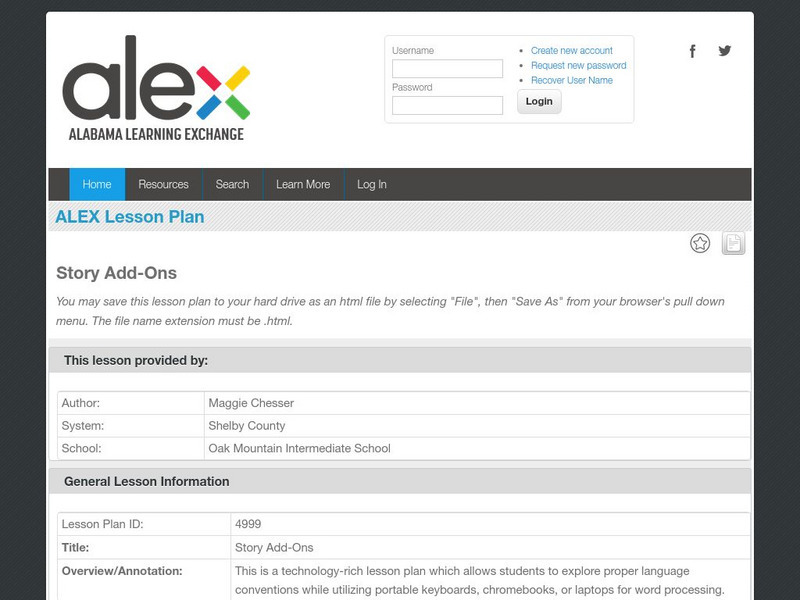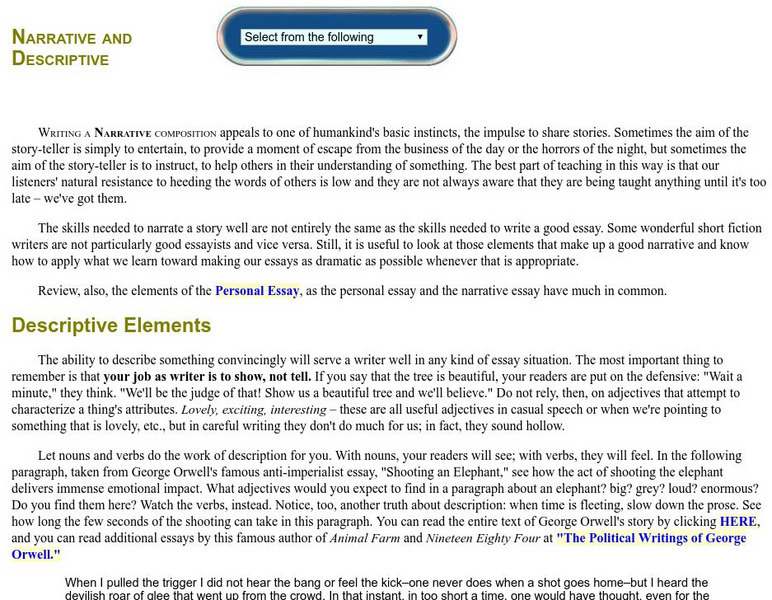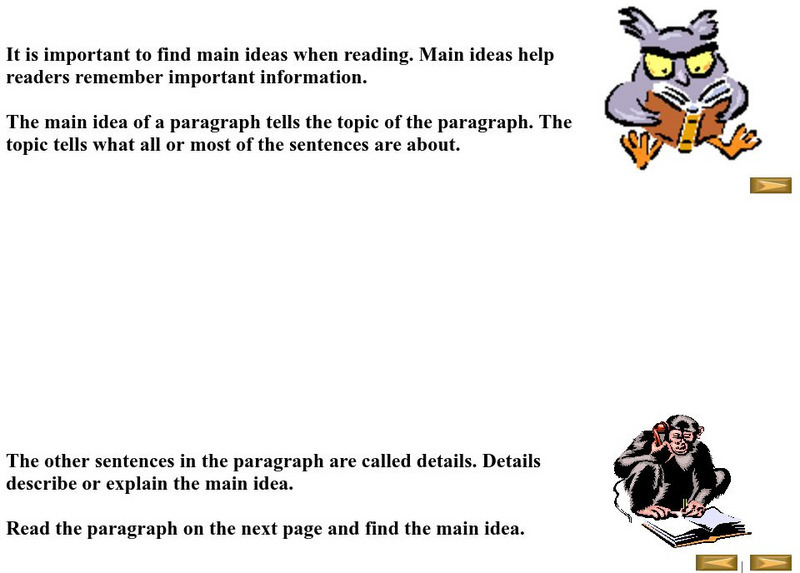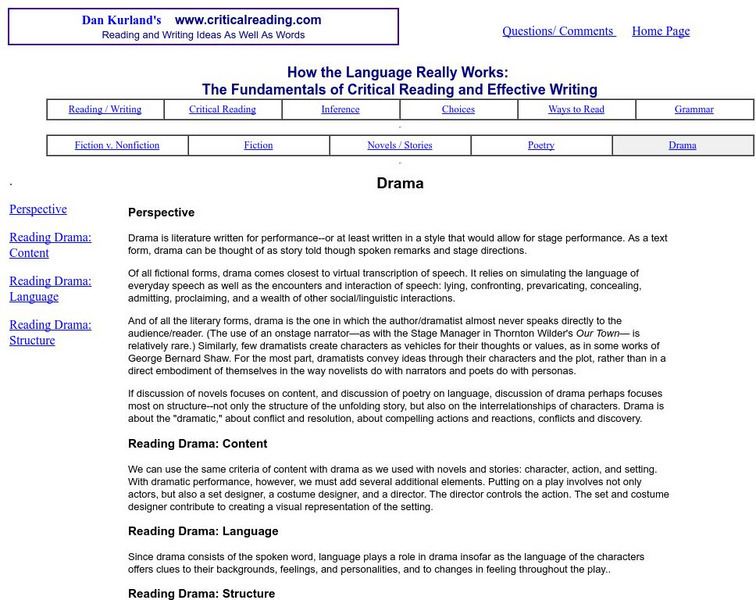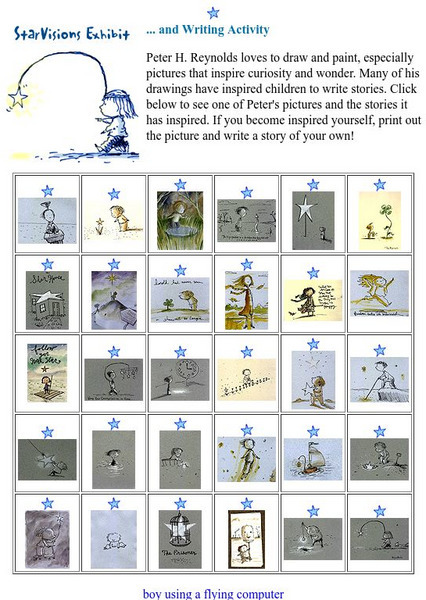Florida Center for Reading Research
Florida Center for Reading Research: Narrative Text Structure: Summary Step Up [Pdf]
A lesson plan in which students read a narrative text and complete a graphic organizer to show the plot elements of the story. Materials are included.
Florida Center for Reading Research
Florida Center for Reading Research: Check a Trait
A lesson plan in which young scholars read a narrative text and complete a graphic organizer to describe the characters in the story. Materials are included. [PDF]
Florida Center for Reading Research
Florida Center for Reading Research: Character Consideration
A lesson plan in which students read a narrative text and complete graphic organizers to analyze a character. Materials are included. [PDF]
Alabama Learning Exchange
Alex: Writing to Determine, "What Is a Pulgar?"
This lesson plan is a writing follow-up to the guided reading lesson plan, "What is a Pulgar?" It utilizes a Makes Sense Strategies Think-sheet to guide the writing.
Tech4Learning
Tech4 Learning: Creative Educator: Character Scrapbook
When we read novels, authors provide details about the main character through descriptive sentences, events that directly involve the character, and what other characters think and say about the main character. To show what you know...
South Carolina Educational Television
Know It All: Types of Conflict
Students will learn about the four major types of conflict. They will use children's books to identify the types of conflict used, as well as create their own narratives using one of the types of conflict.
South Carolina Educational Television
Know It All: Non Fiction Text Features
Fifth graders will use non-fiction books to identify and explain how text features help them as individual readers.
Alabama Learning Exchange
Alex: Story Add Ons
This is a technology-rich lesson plan which allows students to explore proper language conventions while utilizing portable keyboards for word processing.
PBS
Pbs Learning Media: Arthur: Collection
This collection foster students' interest in reading and writing, and encourage positive social skills with this collection of classroom resources from ARTHUR. Aimed at children between the ages of four and eight, these resources feature...
Scholastic
Scholastic: Teaching Tools: 6 Steps to Helping Students Set Strong Reading Goals
This site offers six steps to helping students set strong reading goals. It all starts with inspiring your students to think about who they are as readers.
Louisiana Department of Education
Louisiana Doe: Louisiana Believes: Guide for Determining Text Complexity
An educator's guide to help determine the level of text complexity.
Capital Community College Foundation
Guide to Grammar and Writing: The Narrative Essay
Need help picking out the elements of a narrative? Check this site out from Capital Community College, and you'll see some background information, a sample essay, and directed questions to ask yourself about a text. W.9-10.3 Narrative,...
AdLit
Ad lit.org: Classroom Strategies: Story Maps
Story Maps are used for teaching students to work with story structure for better comprehension. This technique uses visual representations to help students organize important elements of a story. Students learn to summarize the main...
Writing Fix
Writing Fix: Color Game
Click the buttons to get a unique starter for a descriptive piece of writing. You can make up a story, a poem, anything you like.
Beacon Learning Center
Beacon Learning Center: Web Lessons: Get the Main Idea
This resource provides practice finding the main idea by having students read a paragraph and choose the main idea. Then it asks students to take what they have learned and apply it to a book of their choice, and then write a paragraph...
Curated OER
Ccss Literacy E Handbook: Literature: Summarize
An explanation of summarizing a selection along with a link to a model summarizing activity.
Other
Critical reading.com: Drama
Discusses what the literary form of drama consists of in relation to its content, language, and structure.
FableVision
Fable Vision: Peter Reynolds: The North Star: Writing Activity
Be inspired to write your own simple story or poem by choosing a picture from this collection of child-centered illustrations.
Quia
Quia: Short Story Elements: Definitions
Students can choose from three different activities while practicing story elements. Flashcards give students a chance to learn the elements and their definitions. A matching game gives students an opportunity to test their new learning,...
Quia
Quia: Character Traits/descriptions
This reading resource provides vocabulary words with definitions. All words are related to character development and character traits. A link to associated review activities is included.
Quia
Quia: Narrative Structure Elements
This reading resource provides vocabulary words with definitions. All words are related to the elements of narratives. A link to associated review activities is included.
Quia
Quia: Compare and Contrast Stories
This interactive assessment engages students in comparing and contrasting two literary text passages. Students will read two short passages and answer five questions that require students to compare and contrast the content of each story.
Quia
Quia: Compare/contrast Character, Plot, and Setting Test
This interactive activity assesses students' understanding of the story elements. Students will read passages that include a short story and a brief drama; then students will answer assorted questions associated to each piece.
Quia
Quia: Short Story Elements: Definitions
Play a memory match game by uncovering each story element along with its definition.


![Florida Center for Reading Research: Narrative Text Structure: Summary Step Up [Pdf] Lesson Plan Florida Center for Reading Research: Narrative Text Structure: Summary Step Up [Pdf] Lesson Plan](https://content.lessonplanet.com/knovation/original/509116-c9c6546ed67fc47f39cd0cad4fb48ffa.jpg?1661786948)

